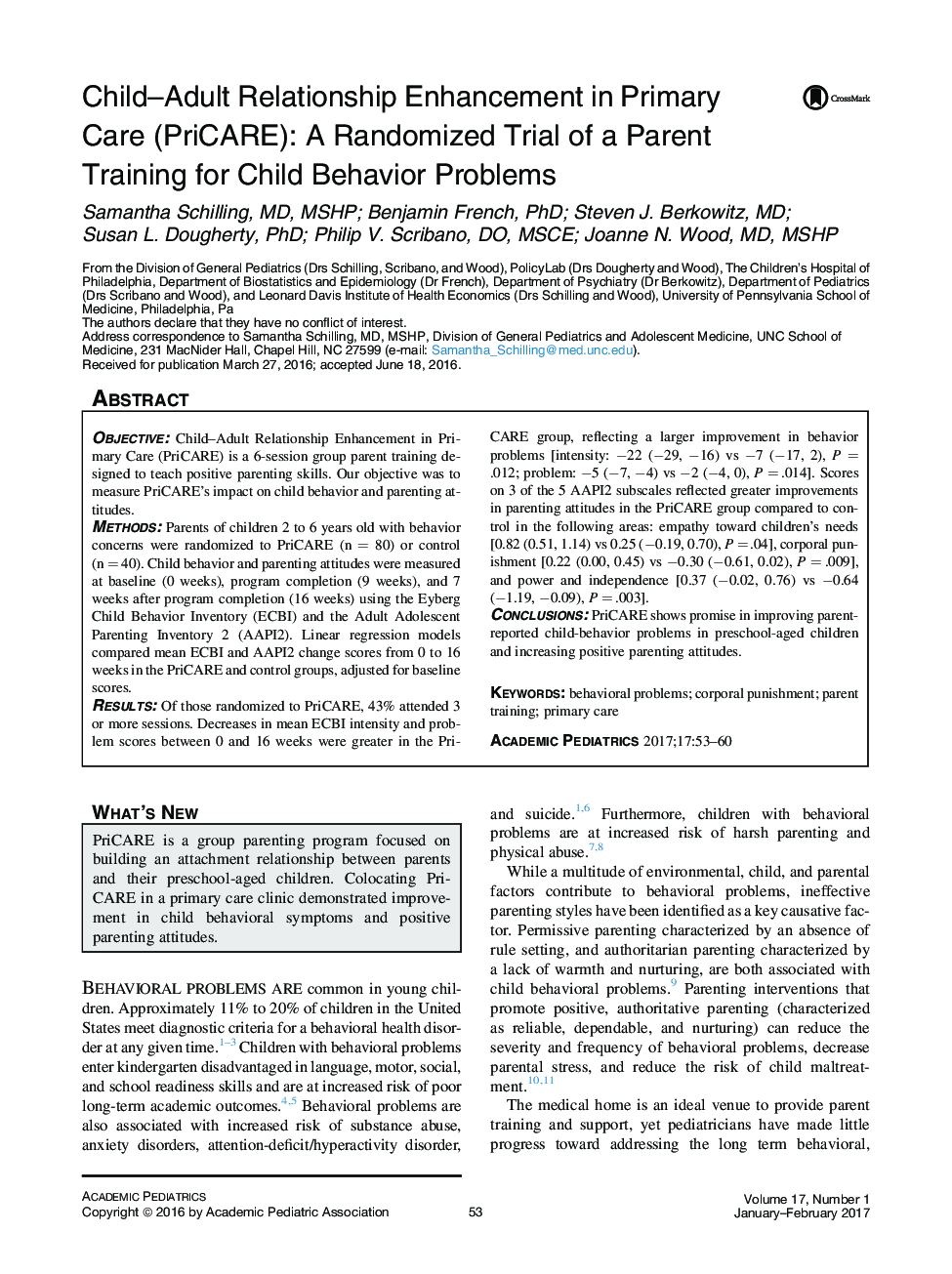| کد مقاله | کد نشریه | سال انتشار | مقاله انگلیسی | نسخه تمام متن |
|---|---|---|---|---|
| 5717020 | 1411176 | 2017 | 8 صفحه PDF | دانلود رایگان |

ObjectiveChild-Adult Relationship Enhancement in Primary Care (PriCARE) is a 6-session group parent training designed to teach positive parenting skills. Our objective was to measure PriCARE's impact on child behavior and parenting attitudes.MethodsParents of children 2 to 6 years old with behavior concerns were randomized to PriCARE (n = 80) or control (n = 40). Child behavior and parenting attitudes were measured at baseline (0 weeks), program completion (9 weeks), and 7 weeks after program completion (16 weeks) using the Eyberg Child Behavior Inventory (ECBI) and the Adult Adolescent Parenting Inventory 2 (AAPI2). Linear regression models compared mean ECBI and AAPI2 change scores from 0 to 16 weeks in the PriCARE and control groups, adjusted for baseline scores.ResultsOf those randomized to PriCARE, 43% attended 3 or more sessions. Decreases in mean ECBI intensity and problem scores between 0 and 16 weeks were greater in the PriCARE group, reflecting a larger improvement in behavior problems [intensity: â22 (â29, â16) vs â7 (â17, 2), P = .012; problem: â5 (â7, â4) vs â2 (â4, 0), P = .014]. Scores on 3 of the 5 AAPI2 subscales reflected greater improvements in parenting attitudes in the PriCARE group compared to control in the following areas: empathy toward children's needs [0.82 (0.51, 1.14) vs 0.25 (â0.19, 0.70), P = .04], corporal punishment [0.22 (0.00, 0.45) vs â0.30 (â0.61, 0.02), P = .009], and power and independence [0.37 (â0.02, 0.76) vs â0.64 (â1.19, â0.09), P = .003].ConclusionsPriCARE shows promise in improving parent-reported child-behavior problems in preschool-aged children and increasing positive parenting attitudes.
Journal: Academic Pediatrics - Volume 17, Issue 1, JanuaryâFebruary 2017, Pages 53-60